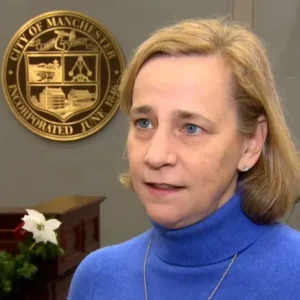Democratic Mayor Joyce Craig called out Gov. Chris Sununu for ending the $200 million in ratepayer subsidies for the Burgess Biopower plant, saying she was “disappointed” in his decision. And, she claimed, keeping ratepayer subsidies would somehow “lower costs for families.”
It is a claim that appears to fly in the face of the facts surrounding the biopower bill.
At issue is a measure to forgive $70 million in subsidies paid by Eversource customers who were forced to pay artificially high prices for the electricity generated by the Burgess biomass plant. As natural gas and renewables have driven prices down, the wood-burning biomass plant couldn’t compete. It has repeatedly been given subsidies by legislators, previously overriding a Sununu veto, to keep the plant operating.
As Drew Cline of the Josiah Bartlett Center noted earlier this year, “From the Burgess plant’s opening in 2014 through the end of 2021, the PUC-approved [biomass subsidy] agreement cost New Hampshire ratepayers more than $150 million.”
That didn’t stop the legislature from passing HB 142, taking Burgess off the hook for some $70 million it owes Eversource ratepayers who overpaid for their power. The bill was backed by House Democrats 187-1, while a majority of House Republicans voted against it (108-81).
In his veto message, Sununu reminded legislators of their previous bills giving more money to the Burgess plant, all on the promise that it would find a way to become solvent.
“It has now been five years … and the best idea brought forward to keep the plant going is to ask the state to forgive the approximately $70 million that the plant owes back to ratepayers. To sign this bill would continue to allow Burgess Biopower to collect millions of dollars in ratepayer subsidies every month with no hope of a solution and wipe out their debt obligation to our ratepayers… Enough is Enough!”
Democrats disagree.
“The vetoing of this bill will regrettably have a negative impact on the North Country, particularly Berlin, as well as ratepayers across the state, by putting the continued operation of the Burgess Biopower Plant in jeopardy,” said Sen. David Watters (D-Dover).
Mayor Paul Grenier (D-Berlin) said he was disappointed by Sununu’s decision.
“The impact to the city of Berlin will be enormous at the time when our economy was gaining momentum,” Grenier said.
But it was the reaction of one of the Democrats who want to take over for Sununu next year that raised the most eyebrows.
“I am disappointed by Gov. Sununu’s veto of this bipartisan bill that would ensure the continued operation of a renewable energy resource and keep jobs in Berlin,” Craig posted on social media. “As governor, I’ll stand with local communities to support good-paying jobs and lower costs for families.”
Craig’s claim that keeping the artificially-high electric bills for Eversource customers would “lower costs for families” doesn’t appear to match the math. Even Berlin’s Mayor Grenier acknowledged in the wake of the veto that utility bills would go down, though he claims by an insignificant amount.
How would keeping ratepayer-funded subsidies lower costs? NHJournal repeatedly asked the Craig campaign for an explanation. The did not offer one.
Rep. Michael Harrington (R-Strafford) sits on the House Science, Technology and Committee and is a former New Hampshire Public Utilities Commission member. He said Craig’s position would mean never-ending ratepayer payments to the plant.
“The bottom line is that the plant will never run under the present ownership structure without massive subsidies,” Harrington told NHJournal. “This is simply the government forcing ratepayers to subsidize a special interest. The charge is paid by every Eversource customer, whether they take default energy service or not, and collected through the stranded cost recovery charge.
“Ask the mayor if she would like ratepayers to subsidize my pineapple farm in Strafford,” Harrington joked. “I would only use renewable energy, create many, many jobs. Of course, I would need massive subsidies.”
And while Craig is correct in calling biomass power “renewable,” it is not carbon neutral. In fact, even biomass advocates admit burning biomass releases about the same amount of carbon dioxide as burning fossil fuels. Craig’s support for a high-carbon power plant appears at odds with her public claims of supporting zero-carbon goals.
Once again, Craig’s campaign declined to respond to requests for clarification.
In addition to her stance on the biomass plant, Craig is also dodging questions about her longstanding support for sanctuary community policies in the wake of the apprehension of a wanted mass murderer from Brazil living illegally in New Hampshire.
Craig is facing off with Executive Councilor Cinde Warmington in the Democratic primary for governor. Republicans former U.S. Sen. Kelly Ayotte and former state Senate President Chuck Morse are running in the GOP primary.





